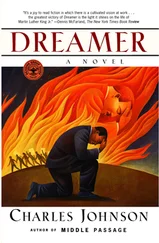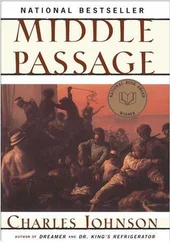Charles Johnson - Sorcerer's Apprentice
Здесь есть возможность читать онлайн «Charles Johnson - Sorcerer's Apprentice» весь текст электронной книги совершенно бесплатно (целиком полную версию без сокращений). В некоторых случаях можно слушать аудио, скачать через торрент в формате fb2 и присутствует краткое содержание. Год выпуска: 2014, Издательство: Dzanc Books, Жанр: Современная проза, на английском языке. Описание произведения, (предисловие) а так же отзывы посетителей доступны на портале библиотеки ЛибКат.
- Название:Sorcerer's Apprentice
- Автор:
- Издательство:Dzanc Books
- Жанр:
- Год:2014
- ISBN:нет данных
- Рейтинг книги:3 / 5. Голосов: 1
-
Избранное:Добавить в избранное
- Отзывы:
-
Ваша оценка:
- 60
- 1
- 2
- 3
- 4
- 5
Sorcerer's Apprentice: краткое содержание, описание и аннотация
Предлагаем к чтению аннотацию, описание, краткое содержание или предисловие (зависит от того, что написал сам автор книги «Sorcerer's Apprentice»). Если вы не нашли необходимую информацию о книге — напишите в комментариях, мы постараемся отыскать её.
Sorcerer's Apprentice — читать онлайн бесплатно полную книгу (весь текст) целиком
Ниже представлен текст книги, разбитый по страницам. Система сохранения места последней прочитанной страницы, позволяет с удобством читать онлайн бесплатно книгу «Sorcerer's Apprentice», без необходимости каждый раз заново искать на чём Вы остановились. Поставьте закладку, и сможете в любой момент перейти на страницу, на которой закончили чтение.
Интервал:
Закладка:
When he finds that this tree
Continues to be
When there’s no one about in the Quad.
“Dear sir, your astonishment’s odd;
I am always about in the Quad.
And, therefore, this tree
Will continue to be
As observed by yours, faithfully, God.”
Lecturing, I seldom noticed her, only a dark blur, a whiff of sandalwood, but this winter, after thirty years of teaching, years as outwardly calm as those of a monk or contemplative, devoted to books, my study of Kant led to a nearly forgotten philosopher named Max Scheler, who said — and this shook me deeply—“Contemplation of essence, the fundamental approach to Being peculiar to metaphysical knowledge, demands an attitude of loving devotion,” so yes, I did see Wendy Barnes, but with the flash of clear vision, the focus, the gasp of recognition that slaps you, suddenly, when a tree drawing in a child’s book (the dome of leaves, I mean) recomposes itself as a face. My mouth wobbled. If I had been standing, I would have staggered. I forgot my lecture; I sent my Kant scholars home.
Legging it back to my office in Padelford Hall, a building as old —so I put it to myself —as a medieval fortress, I could not pull my thoughts together. Shame , I thought. O shameful to have hot flashes for a student. My room of papers (half-finished books that had collapsed on me in mid-manuscript, or changed as I was chasing them), closed ’round me comfortably when I slumped behind my desk, flipping through my gradebook. The girl Wendy, an Equal Opportunity Program student, was failing — no fault of mine — but it saddened me all the same, and now I suppose I must tell you why.
Time being short, I must explain briefly, hoping not to bore you, that a Negro professor is, although reappointed and tenured, a kind of two-reel comedy. Like his students, like Wendy, he looks back to the bleak world of black Chicago (in my case), where his spirit, if you will, fought to free itself — as Hegel’s anxious Spirit struggles against matter — from a life that led predictably to either (a) drugs, (b) a Post Office job, (c) Marion Prison, (d) Sunset Cemetery (all black), or (e) the ooga-booga of Christianity. And what of college? There, like a thief come to table, he hungrily grabs crumbs of thought from their genuine context, reading Hume for his reasoning on the self, blinking that author’s racial slurs, “feeling his twoness,” as Du Bois so beautifully put it in a brilliant stroke of classic Dualism, “an American, a Negro; two souls, two thoughts, two warring ideals in one dark body.” Regardless, he puts his shoulder to the wheel, pushing doggedly on as I did: a dreamy, first-generation student in a paint-by-numbers curriculum, fed by books for Negro uplift — the modern equivalent, you might say, of Plutarch’s Lives of the Noble Grecians (which I swore by). Not exactly biography, these odd books from the Negro press, and with titles like Lives That Lift —written by blacks to inspire blacks — but myths about men who tried, in their own small way, to create lives that could be, if disciplined, the basis of universal law. He embraces — and this is the killing part — the lofty balderdash of his balding, crabbed-faced teachers about sober Truth and Science when they, shaken by Wittgenstein, had in fact lost faith and were madly humping their teaching assistants.
So, I mean to say, that Scheler, the night before in my study, pulled me up short. Lately, I live alone in three untidy, low-ceilinged rooms I rent in Evanston near Northwestern University. I get up at three each morning, read Hebrew, Greek, or Sanskrit at my roll-top desk, but no tabloids or lurid newspapers. Nights, I soak in a hot bath of Epsom salts, never forget my thought exercises — perceptual tricks pulled from Husserl’s Ideen— and eat my dinners (no meat or eggs) in a nearby diner, slowly because I have an ulcer, bad digestion, and a bathroom cabinet spilling open with pills for migraines, stomach cramps, and potions (Dr. Hobson’s Vegetable Prescription, McClean’s Tar Wine Compound) for rest. At fifty, I sleep poorly. So it has been for years. Barricaded in by books, bleary with insomnia, I read Scheler’s Philosophical Perspectives , my medicines beside me on my desk, and it came to me, sadly — I felt sad, at least, as if I’d misunderstood something any salesgirl knew instinctively — that living for knowledge, ignoring love, as I had, was wrong, because love — transcendental love— was knowledge. True enough, “love” is on the lips of every sentimental schoolgirl (or boy), and cheapened by maudlin songwriters. A thoughtful man doubts, and rightly so, these vulgar reports.
But Scheler wrote — if I’ve got this right — that Mind, revealed by Kant to be only a relation in the worldweb, was a special kind of window, a gap in Being, an opening that, if directed toward another, allowed him (or her) to appear — like Plato’s form of “The Good”—as both moral and beautiful. The implications, I daresay, were staggering, for Nature, contrary to common sense, needed man to clarify its meaning. (Of course, there was a paradox in this: To say “Man clarifies Nature” is to say, oddly, that “Nature clarifies Nature,” because man is a part of Nature, which suggests, stranger still, that man — if self-forgetful — is not an actor or agent at all.) Scheler’s happy term alethia , “to call forth from concealedness,” advanced the theory that each man, each moment, each blink of the eye, was responsible for obliterating the petty “Old Adam” and conjuring only those visions from perceptual chaos that let be goodness, truth, beauty. So what? So this:
How a better scholar would interpret this, I do not know; but to a plodding, tired man like myself, alēthia meant the celebration of exactly that ugly, lovely black life (so it was to me) I’d fled so long ago in my childhood, as if seeing beauty in every tissue and every vein of a world lacking discipline and obedience to law were the real goal of metaphysics; as if, for all my hankering after Truth in the Academy, Truth had been hidden all along, waiting for my “look” in the cold-water flats between Cottage Grove Avenue and the Rock Island right-of-way.
I was under the spell of this extravagant idea when Wendy Barnes came barreling into my office, sore as hell, banging the door against my wall, and blew noisily up to my desk. “You know what my adviser, the punk, just pulled on me?” She was chewing gum with her mouth open, punishing the wad as if it might be her adviser.
“There now,” I said, professorial. I pushed back my swivel chair. “Tell me about it.”
She slammed shut the door with her hip, then threw herself into a chair. Here then was Wendy in a loose white blouse and open-top brassiere, with a floss of black hair, a wide, thick mouth, and a loud, vibrating voice. I judged her to be twenty-five. She had large, uncanny eyes that sometimes looked brown or sepia, sometimes black with no iris like blobs of oil, sometimes hard and gray like metal. And what of her character? She might have been one of three sassy, well-medicated blues singers backing up James Brown down at the Regal. I thought her vulgar. “I’ve got to get a B to stay in school.” She dipped into her purse for a pack of Kools—“Or they kick me out, see? — then lit a cigarette. Her hands shook, hobbling the flame of her match; then she lifted her head, slanting her eyes at me. “I’ll do anything to get that grade.”
“Anything?” I asked. “Perhaps an incomplete for—”
“You still don’t get it, do you?” She blinked away cigarette smoke curling up her wrist. “Like, I been here goin’ on six years now, and if nothing else, I know how this place works. Like, I ain’t got nothin’ against you, but I ain’t about to go back to no factory, or day-work. If I don’t ace this course — are you listenin’?—I’m gonna have to tell your chairman Dick Dunn and Dean David Mc-Cracken that you been houndin’ me for trim.”
Читать дальшеИнтервал:
Закладка:
Похожие книги на «Sorcerer's Apprentice»
Представляем Вашему вниманию похожие книги на «Sorcerer's Apprentice» списком для выбора. Мы отобрали схожую по названию и смыслу литературу в надежде предоставить читателям больше вариантов отыскать новые, интересные, ещё непрочитанные произведения.
Обсуждение, отзывы о книге «Sorcerer's Apprentice» и просто собственные мнения читателей. Оставьте ваши комментарии, напишите, что Вы думаете о произведении, его смысле или главных героях. Укажите что конкретно понравилось, а что нет, и почему Вы так считаете.












